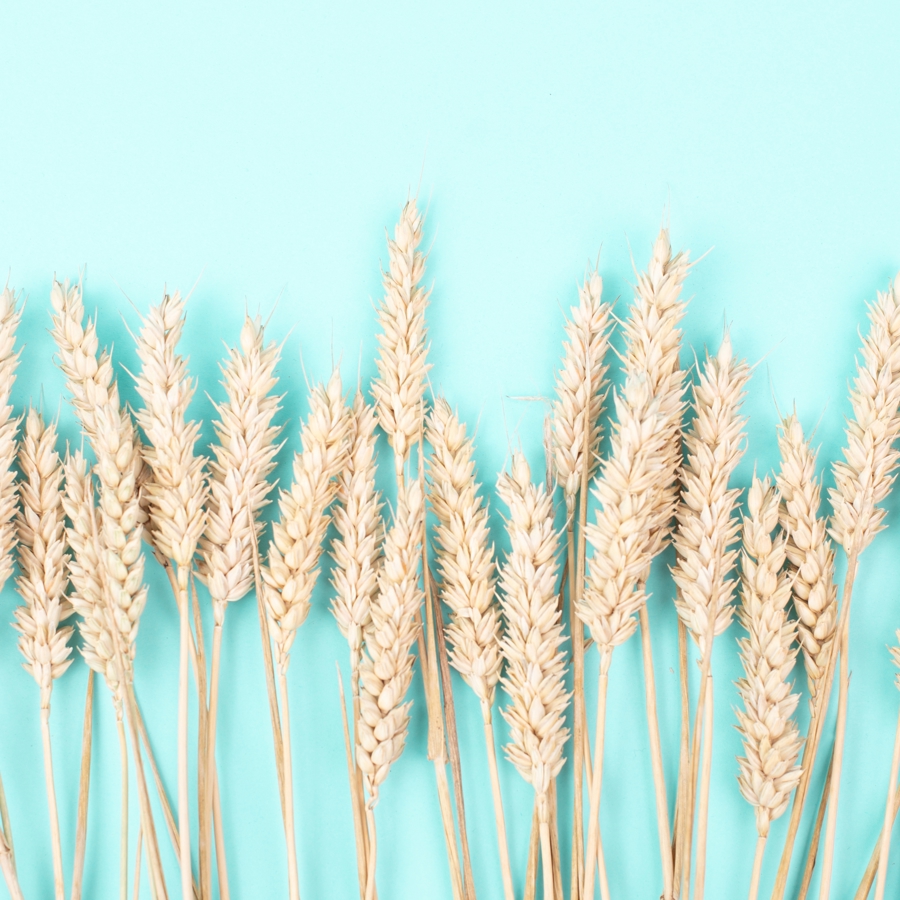
What are the chances I will inherit celiac disease?
October 14, 2025

- Related Topics:
- Autoimmune disease,
- Medical genetics,
- Genetic variation
A college student from Los Angeles asks:
"My sister has celiac disease. What are the chances that I cannot eat bread? My dad is a carrier."
Uh oh - your sister can’t eat bread and now you’re staring at your sandwich wondering if you’re next. The good news? It turns out that although having a sibling with celiac disease does put you at a higher risk of developing it, there’s certainly no guarantee that you will. In fact, most people who have a sibling with celiac don’t end up with it themselves! So what does cause someone to develop celiac disease? And how does genetics come into the picture?
Let’s break it down.
Ok, wait, what even is celiac disease?
Glad you asked! Celiac disease is an autoimmune condition - a kind of disease where your immune system gets confused and starts attacking your own body instead of actual germs. In the case of celiac, it’s gluten (a protein found in wheat, barley, and rye) which becomes mistaken as a dangerous invader. The result? Every time gluten shows up, the immune system charges in and targets the small intestine, which can seriously damage the intestinal lining over time and prevent it from properly absorbing nutrients. That’s why many people with celiac disease suffer from symptoms like diarrhea, fatigue, and bloating if they consume any gluten.

So why does my sister have celiac disease?
That really is the million-dollar question - because although celiac disease has existed for thousands of years, scientists still don’t fully understand why some people get it and others don’t! But here’s what we do know:
Meet the HLA Genes
Your immune system needs a way to distinguish germs from your own body. That’s where a set of genes known as HLA (human leukocyte antigen) come in. Think of HLA genes as your body’s ID-checking system - they code for proteins that present little bits of potential invaders (like bacteria, viruses, or parasites) to your immune cells. The immune cells then decide: “safe” or “attack!”
But here’s the thing - some versions of HLA genes can produce protein complexes which make it more likely for your immune system to mistakenly see gluten as a threat. Two protein complexes that are especially important for celiac disease are HLA-DQ2 and HLA-DQ8, as over 99% of people with celiac disease express one of them.1 In fact, without one of these complexes, it’s highly unlikely that someone will develop the condition.1
So you might be thinking: well, there it is, case closed - the HLA genes explain who ends up developing celiac! But it’s not quite so simple. It turns out that about 30-40% of the general population also expresses either HLA-DQ2 or HLA-DQ8, but only around 1% actually get the disease!2 It’s also worth mentioning that there are other genes as well which add small amounts of risk for celiac.3 So while the HLA genes are essentially necessary for developing celiac disease, they don’t seem to be the whole picture. What else could be going on?
Environmental Factors: The Other Half of the Story
Researchers now believe that along with genetic factors, there are also environmental influences that can shape someone’s risk of developing celiac disease. These include the age at which gluten is introduced into an infant’s diet, whether and how long they were breastfed, how hygienic their early environment was, and even the mix of microbes living in their gut.4

It’s important to keep in mind, though, that no one factor has been definitively linked to celiac disease onset. Scientists are still trying to puzzle out what combination of genetic and environmental factors gives rise to that perfect storm. All we can say right now is - it’s complicated!
What does this mean for you?
If your sister has celiac disease, your odds of also having celiac are definitely higher than the average population. Instead of about a 1 in 100 chance, researchers estimate that siblings of those with celiac could have up to a 1 in 5 chance.5 That might sound high at first, but let’s flip it around - you have a 4 in 5 chance of not developing celiac, even with your family history!
If you’re worried, consider:
- Talking to a doctor. They may suggest getting a blood screen for celiac antibodies, which can tell you if your body’s immune system views gluten as a threat.
- Getting genetic testing. A genetic test will reveal if you have the variants encoding HLA-DQ2 or HLA-DQ8, which increase your risk for celiac disease.
For now, though, there’s no reason to panic or to cut gluten out of your diet unless your doctor recommends it. So relax, enjoy that sandwich, and know that the odds are in your favor!

Author: Ronit Jain
When this article was published in 2025, Ronit was a graduate student in the Genetics Department at Stanford studying RNA-mediated gene regulatory processes. Ronit wrote this answer while participating in the Stanford at The Tech program.
 Skip Navigation
Skip Navigation
